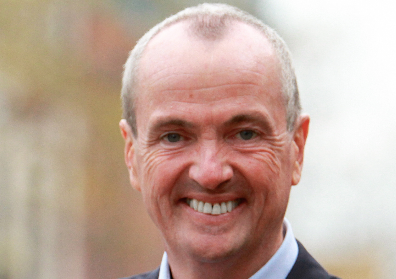Photo: Wikimedia Commons
TRENTON, NJ – New Jersey LCV is urging Governor Murphy (above) and state legislators to prioritize the environment in their budget planning this year. Now more than ever, New Jersey must double down on our commitment to clean air, safe drinking water, and open space for all people no matter their zip code.
Specifically, New Jersey LCV is asking for $3 million for the New Jersey School of Conservation, that lawmakers oppose a proposal to raid $82 million from the Clean Energy Fund, and for full funding of the Delaware River Water Basin Commission at $893,000.
“Governor Murphy has made a commitment to restoring New Jersey to a position of national environmental leadership, and we expect him to act on that promise,” said Ed Potosnak, Executive Director, New Jersey LCV. “The good news is that the state is flush with cash due to federal funding to help rebuild the economy post-COVID. Now we need to make sure the money goes where it’s really needed.”
Efforts to restart the economy and recover from the COVID-19 pandemic must be aligned with New Jersey’s clean energy and climate goals. Smart environmental policies will generate savings for residents, businesses, and the state while creating thousands of good paying jobs that can’t be outsourced. Most importantly, it will help improve health outcomes for all New Jerseyans.
“We know that a budget tells the real story about what you’re really committed to. Now is not the time for New Jersey to shortchange pro-environment initiatives,” added Potosnak. “We must demonstrate through our spending that we care about the environment by dedicating $3 million to fund important environmental education at the New Jersey School of Conservation; end the raids once and for all to the Clean Energy Fund to help families and businesses improve energy efficiency and electrify our homes and cars, trucks, and buses; and fully fund New Jersey’s share of the small but mighty Delaware River Basin Commission.”
New Jersey LCV is also working to pass legislation before the current session ends. We support an Appliance Standards bill that could save New Jerseyans nearly $130 million annually by 2026. The bill has passed both Senate and Assembly environment committees, and needs some extra work to cross the finish line.
“Clean energy, energy efficiency, and cost savings are related. The updated appliance standards bill is a perfect example of that. We thank Assemblyman DeAngelo for his continued leadership in making New Jersey a leader in energy efficiency and climate action, and urge the Senate to swiftly move this bipartisan bill to make the $132 million utility-bill savings a reality for all New Jerseyans,” said Henry Gajda, Policy Director, New Jersey LCV. “The legislation simply gives everyone more energy-efficient choices when it’s time to replace old appliances.”
New Jersey LCV and our partners at National Resources Defense Council (NRDC) and New Jersey Audubon are also pushing for passage of the “Save the Bees” bill (A2070/S1016), which would eliminate unnecessary non-agricultural use of neonicotinoid insecticides (“neonics”). Neonics are neurotoxins that decimate bees and other wildlife populations, extensively contaminate New Jersey’s water and lands, and may be harming the health of residents. New Jersey’s pollinators are disappearing, with beekeepers losing between 40% to 50% of their colonies annually for most of the last decade. Honeybees are a $7 million industry in New Jersey and—along with wild bees and other pollinators—help pollinate nearly $200 million worth of fruits and vegetables annually.
A state poll shows that New Jerseyans of all backgrounds are committed to protecting the environment. Governor Murphy and state legislators must move us forward and protect the beauty and quality of life in our wonderful state for our children and grandchildren. New Jersey League of Conservation Voters is a non-partisan organization whose mission is to elect environmental champions, hold public officials accountable, and support laws which protect our environment and improve the quality of people’s lives.


















